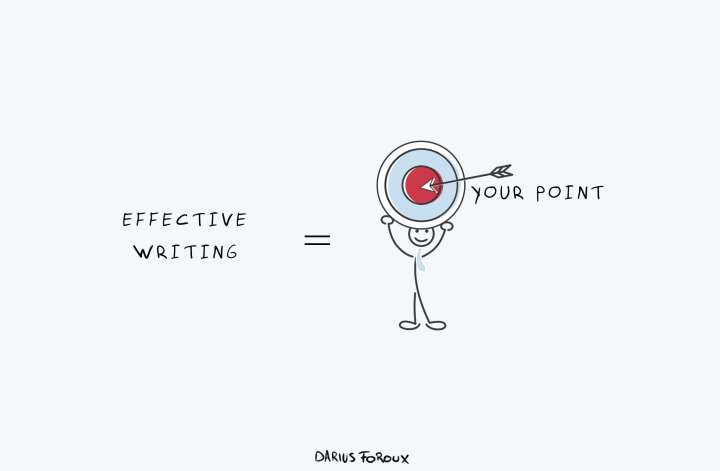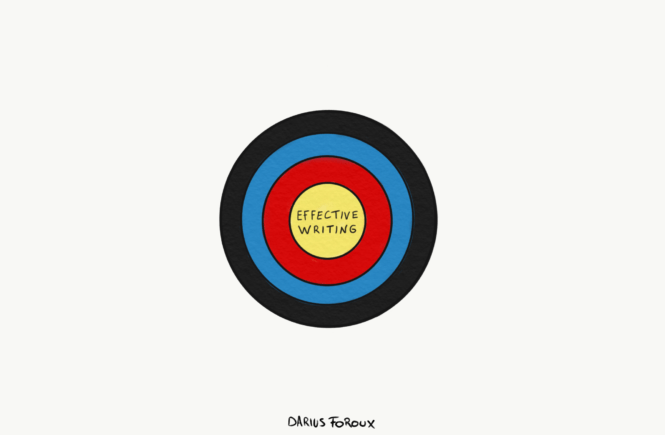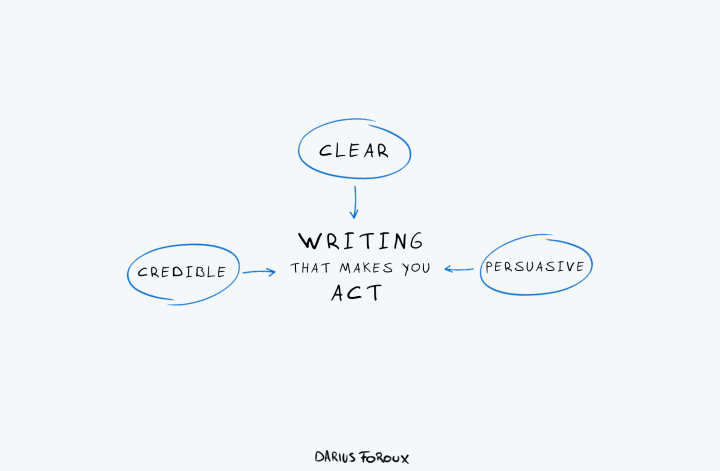There are many reasons every person should learn how to write clearly. But two things dwarf every other reason. Namely, credibility and time.
Both these aspects are critical to our careers. Without credibility, it’s impossible to build the trust required for a long-term career. And if your writing is confusing, you’ll waste a lot of time trying to clear things up.
These two reasons might sound obvious, but even successful people commit the mistake of unclear writing. And they paid a high price for it. I believe we don’t stress the importance of clear, credible, and persuasive writing enough, which leads to all these confusing and lifeless written works around us.
To fix that, we need to become aware of the importance of clear writing. Here are two examples.
1. Clear writing improves your credibility
Brian Armstrong, CEO of Coinbase, a well-known cryptocurrency company, recently received widespread backlash over a blog post. In a post on their company blog, Armstrong said that employees should stop discussing political and social issues at work.
He argued that these discussions create internal division and distract them from pursuing the company’s mission. Many CEOs and investors would agree with Armstrong. One of the most popular and successful investors of Silicon Valley, Chamath Palihapitiya, backed Armstrong’s sentiment in a podcast.
But at the same time, Chamath also said that the post was “really poorly written. And that’s why it’s been so misunderstood.” He also said Armstrong was rambling. Instead, Chamath would rewrite the message and be clear about why they want to avoid discussing politics at work.
Armstrong offered a deal to employees who didn’t agree. 60 employees, or 5% of Coinbase’s workforce, took it and left the company. But a damaged reputation is not the only consequence for Coinbase. This fiasco might’ve have pissed off valuable talent that could’ve worked for them. And talent is the most important asset of a tech company.
Actionable advice: Watch for ambiguity
Some people think credibility is all about grammar. But how often have you read grammatically sound writing that didn’t resonate with you? Or how about writing that gets an A+ for grammar but just makes no sense? Writing is about making sure the reader gets you—not to please your English teacher.
I used to be very unrestrained with my words and blurted out every single thing that came to mind. As a result, my writing was often ambiguous. That’s when your writing can be interpreted in multiple ways.
Here’s an example: “John gave a puppy to his son wearing khakis.” So who’s wearing the khakis here? John? His son? Or maybe the puppy? I don’t know.
Ambiguity has many different causes. Sometimes it actually is a matter of grammar and punctuation. But it could also be the choice of your words. “Boy, that coffee was something else!” That could be good or bad. When you say it out loud, you can place an emphasis on something, but we don’t have tonality with words.
When you write, always pretend you’re talking to a know-it-all. Someone who likes to put you on the spot. Avoid getting called out by making sure your writing can only be interpreted in one way.
2. Clear writing saves you time
On October 14th, 2020, The New York Post published a story about Hunter Biden, the son of US president-elect Joe Biden, which they shared on social media. Twitter decided to suspend the account of the Post because of a policy violation. Twitter said the content of the Post article seemed to be the result of hacking.
After receiving huge backlash, Twitter CEO Jack Dorsey said that suspending the Post “was wrong.” And Twitter changed its policy. But here’s the thing, Twitter also has a policy on policy changes. Follow? No worries if you don’t, because I don’t think anyone gets Twitter’s policy anymore.
Twitter has a long history of confusion when it comes to its policies and platform moderation. Its rules are confusing and ambiguous. I suspect that’s why this whole Post situation started.
We forget that humans execute policies. So is it the Twitter employee’s fault who suspended the Post? It’s more likely that the policy itself wasn’t clear. When you write something, the meaning has to be 100% clear. That means there should only be one interpretation of your words—even if you’re dealing with sensitive and ambiguous topics. As Elizabeth Lopatto from The Verge writes: “Twitter’s moderation still doesn’t make any damn sense. But congratulations to them on updating their policy on policy changes.”
This situation cost Twitter time. They could’ve used that time on other important things.
Actionable advice: Let your writing sit
Avoid writing something and clicking send immediately after you’re done. Most of us have the habit of going with our initial thoughts. We receive an email or Slack message, glance at it, and instantly write down the first thing that comes to mind.
In my experience, our first thought is not always the best. I’ve adopted the habit of writing something and letting it sit before I hit send for 90% of my writing. I only write something back instantly when it’s a “yes” or “no” type of response.
But other than that, let your emails to sit for at least 10 minutes. Longer pieces of writing need more time to brew in your mind.
Often, you will rewrite something for clarity before you actually click send. If people can’t wait 10 minutes for you to respond, it’s their problem—not yours.
Conclusion
Our time and credibility are always at stake whenever we write (or even speak). Whether you’re a normal person writing an email, or a high-profile CEO making huge announcements on a blog, your words can and will make a huge impact on your career and life.
While it’s tempting to rush your writing, without being keen on the details; Clear and precise writing is a need. Don’t take it lightly.
Especially when the stakes are high, our time and credibility are far too precious to waste just because of some unclear, misunderstood statement.




